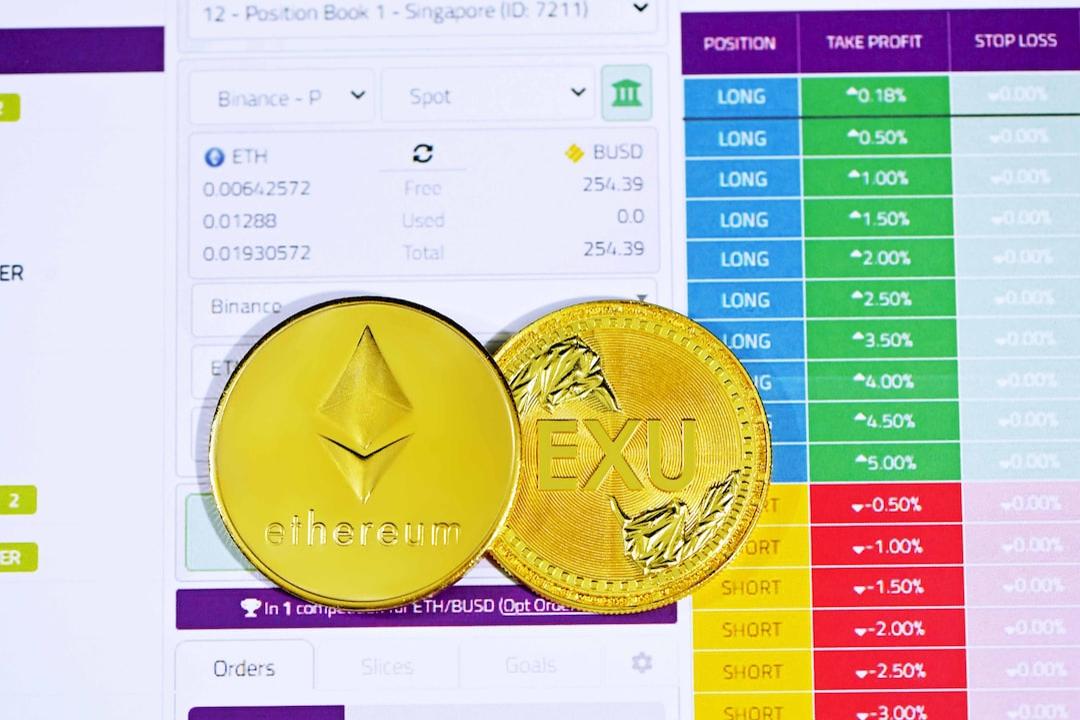Are all cryptocurrency exchanges accomplices in fraud? Things may not be as you think
Despite actively cooperating with investigations and having less than 1% of illicit transactions, cryptocurrency exchanges still can’t shake off their tainted reputation
Apart from money laundering, exchanges actually play a positive role in combating fraud
Why can’t cryptocurrency exchanges shake off their tainted reputation despite whitewashing and cooperating with investigations?
The original sin of cryptocurrency exchanges: money laundering and whitewashing
The “blockchain teacher” for all of Taiwan’s law enforcement agencies is the exchange you may think is a scam
How can exchanges assist in combating financial crimes
On a rainy morning, the Fiscal Information and Investigation Service (FIOD) in the Netherlands received an urgent phone call. It was regarding a fraud case involving millions of euros, endangering numerous families’ assets worldwide. The mastermind behind this scam was a fake gambling platform called ZKasino.
ZKasino promised investors hefty returns on their funds within 30 days under the guise of a “blockchain casino.” However, hopeful investors soon realized that it was all part of a carefully planned scam.

Binance, the world’s largest exchange, quickly began investigating this case thanks to community alerts. They gathered and verified a large amount of information from public sources and identified the mastermind behind the scam, who turned out to be a Binance user.
As the police investigation deepened, Binance provided crucial transaction tracking information, allowing law enforcement to understand the case details more quickly and comprehensively. This eventually led to the successful arrest of a suspect involved in fraud, embezzlement, and money laundering.
This case is just a glimpse of global financial crimes, but what role do exchanges really play in preventing fraud cases?
Damien Ho, a member of Binance’s Asia-Pacific team, said, “If we’re going to further expand the global adoption of cryptocurrencies, we need to make more people willing to enter this industry and use related services. So, our responsibility is to work with governments, law enforcement, and regulatory agencies to create a safer environment.”
What role do exchanges really play in preventing fraud cases?
Cooperation 1: Collaboration with law enforcement agencies
Despite the diverse methods of cryptocurrency fraud, whenever fraud groups want to withdraw digital assets, they must ultimately go through an exchange to convert these cryptocurrencies into US dollars, New Taiwan dollars, or other fiat currencies.
In other words, exchanges play a critical role in tracing illicit funds on the blockchain.
However, even if exchanges detect suspicious user behavior, without sufficient investigation or evidence, they cannot definitively determine the transactions as fraudulent.
Exchanges must follow the instructions of law enforcement and judicial agencies to freeze or confiscate funds.
The Criminal Investigation Bureau stated that the “165 Anti-Fraud Consultation Hotline System” has established a mechanism for requesting information from 9 Taiwanese virtual asset exchange operators, including MaiCoin, to expedite the handling of virtual asset cases.
However, due to the large number of overseas virtual asset exchanges, law enforcement agencies’ ability to collaborate is limited, with only Binance agreeing to cooperate with domestic law enforcement agencies.
Cooperation 2: Collaboration with prosecution and law enforcement agencies for personnel education and training
Blockchain, as an emerging technology, poses a new challenge for personnel in prosecution and law enforcement agencies. Terms like hot and cold wallets, cross-chain bridges, and various other technical jargon can be overwhelming but are essential knowledge for frontline personnel.
Therefore, “basic blockchain knowledge” and “online investigation skills” have become mandatory courses for personnel in prosecution and law enforcement agencies.
Taiwan’s top two local exchanges, MaiCoin and BitoEX, regularly share their anti-fraud experiences and blockchain-related investigation techniques with the Investigation Bureau, Criminal Investigation Bureau, and Public Prosecutors Office, including providing education and training to law enforcement units to share common exchange fraud behaviors and cases, as well as how to trace money flow on the blockchain.
Kelvin Tan, the founder and CEO of BitoEX, also stated that after being elected as the chairman of the VASP Association, his top priority is to establish regulations for anti-money laundering and anti-fraud, aiming to achieve the development of financial technology in a systematic way to reassure regulators and the public.
Additionally, Binance, a global exchange, has provided education and training to personnel in prosecution and law enforcement agencies worldwide. From June 2023 to the present, they have cooperated with more than a dozen institutions in Taiwan, including the Criminal Investigation Bureau of the National Police Agency, the High Prosecutors Office, and various local public prosecutors’ offices to provide education and training. The content includes the basic principles of blockchain, common criminal patterns and investigation techniques, and introductory money flow tracking, sharing fraud methods and case experiences from around the world with Taiwanese prosecution and law enforcement agencies.
Damien Ho stated, “In 2023, we responded to over 58,000 such law enforcement requests worldwide, including over a thousand in Taiwan.”
Is cryptocurrency just fraud?
With the rise of digital finance, cryptocurrency has rapidly attracted global investors’ attention due to its innovation and convenience. However, as the market explosively grows, related fraudulent activities have become rampant. This situation has led many to unconsciously associate cryptocurrency with “fraud.”
Is this really the case?
According to data analysis platform Chainalysis, the percentage of illicit transactions in cryptocurrency trading was approximately 0.42% in 2022, and the latest data for 2023 is around 0.34%.
Damien Ho stated, “The percentage of illicit activities in traditional financial transactions, according to past United Nations statistics, is 2 to 5%. So, in comparison, illicit transactions in virtual assets are much lower in scale.”
However, it cannot be denied that blockchain and cryptocurrency are still relatively new concepts and technologies for society, making it easier for less knowledgeable individuals to fall for scams.
“Hypothetically, if someone on the internet asks you to invest in a certain stock that’s guaranteed to make a profit, most people probably wouldn’t easily accept it. However, due to a lack of understanding about cryptocurrencies, such as which channels and routes are reliable and trustworthy, people might be deceived into buying cryptocurrencies through over-the-counter transactions,” explained Damien Ho.
Therefore, the key first step in preventing fraud is to raise users’ knowledge and awareness.
In order to help beginners safely enter the world of cryptocurrency and reduce the number of users falling victim to scams, both domestic and overseas exchanges offer abundant online and offline educational resources to help users understand how to safely use cryptocurrencies, identify fraud techniques, and learn to protect their assets.
Online learning resources from exchanges:
Binance Academy
OKX Academy
XREX
HOYA Academy
Offline educational events held by exchanges:
Maicoin Elementary School
BitoEX Academy
Damien Ho also advised that novice investors should pay attention to and learn about blockchain and cryptocurrency, understand reliable trading platforms and investment projects, carefully verify transaction addresses when purchasing and transferring, and be cautious of investment schemes promising overly high returns to avoid falling into fraud traps.
As cryptocurrency gradually becomes a mainstream investment tool, various types of fraud are emerging. It is the responsibility of exchanges to protect platform users’ safety and establish secure compliance standards for the cryptocurrency industry.
Both investors and businesses should raise their awareness and strengthen their knowledge and technical skills, actively collaborating with law enforcement agencies to establish more robust prevention and response mechanisms to safeguard funds and promote the healthy development of the cryptocurrency market.
Are all cryptocurrency exchanges accomplices in fraud Things may not be as you think
Related Posts
Add A Comment

